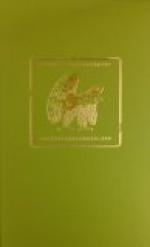Foster was silent.
“Think of it!” Hollis went on. “The shame of it! All those years while he faced privation, the worst kind, tramping Alaska trails, panning in icy streams, sluicing, digging sometimes like any common laborer, wintering in shacks, she was living in luxury down here. He never made a promising discovery that he wasn’t forced to sell. She spent his money faster than he made it; kept him handicapped. And all she ever gave him was a friendly letter now and then, full of herself and the gay life she led, and showing clearly how happy she could be without him. Think of it, Foster!” His voice deepened and caught its vibrant quality. “A fine fellow like Weatherbee; so reliable, so great in a hard place. How could she have treated him as she did? Damn it! How could he have thrown himself away like that, for a feather-headed woman?”
Foster knocked the ash from the end of his cigar. “You don’t know her,” he answered. “If you did, you wouldn’t put it in that way.” He smiled a little and looked off at the golden path on the lake. “So,” he said after a moment, and his glance returned to meet Tisdale’s squarely, “she has absolutely nothing now but that tract of unimproved desert on the other side of the Cascades.”
CHAPTER II
THE QUESTION
Sometime, high on a mountain slope, a cross current of air, or perhaps a tremor of the surface occasioned far off, starts the small snow-cap, that sliding, halting, impelled forward again, always accumulating, gathering momentum, finally becomes the irresistible avalanche. So Marcia Feversham, the following morning, gave the first slight impetus to the question that eventually menaced Tisdale with swift destruction. She was not taking the early train with her husband; she desired to break the long journey and, after the season in the north, prolong the visit with her relatives in Seattle. The delegate had left her sleeping, but when he had finished the light breakfast served him alone in the Morganstein dining-room and hurried out to the waiting limousine, to his surprise he found her in the car. “I am going down to see you away,” she explained; “this salt breeze with the morning tide is so delightfully fresh.”
There was no archness in her glance; her humor was wholly masculine. A firm mouthy brilliant, dark eyes, the heavy Morganstein brows that met over the high nose, gave weight and intensity to anything she said. Her husband, in coaching her for the coming campaign at Washington, had told her earnestness was her strong suit; that her deep, deliberate voice was her best card, but she held in her eyes, unquestionably, both bowers.
“Delightful of you, I am sure,” he answered, taking the seat beside her, with his for-the-public smile, “but I give credit to the air; you are looking as brilliant at this outrageous hour as you would on your way to an afternoon at bridge.” Then, the chauffeur having closed the door and taken his place in the machine, Feversham turned a little to scrutinize her face.




